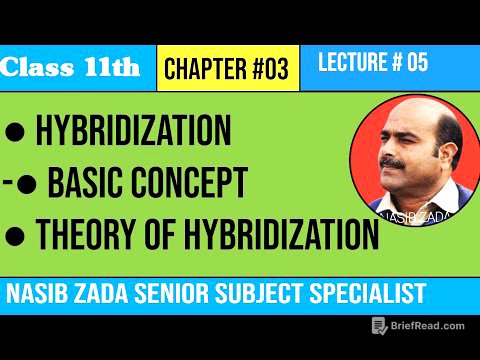TLDR;
This episode of Speaker Dynamics features Matt Abrahams, author of "Think Faster, Talk Smarter," discussing the importance of spontaneous speaking. He defines spontaneous speaking as the communication that happens in the moment, distinct from planned presentations. Abrahams shares insights on managing anxiety, reframing perceptions of spontaneous situations, and the critical role of listening. He also introduces the concept of "maximizing mediocrity" to reduce self-judgment and enhance communication effectiveness, along with strategies for small talk and focusing on being interested rather than interesting.
- Spontaneous speaking is a critical communication skill that can be improved with practice.
- Managing anxiety and shifting mindset are key to effective spontaneous communication.
- Listening is essential for understanding the needs of the moment and responding appropriately.
- "Maximizing mediocrity" helps reduce self-judgment and frees up cognitive bandwidth for better communication.
- Small talk is a valuable opportunity for connection and trust-building.
Introduction [0:01]
Karen Reed introduces Matt Abrahams, the author of "Think Faster, Talk Smarter," and expresses her admiration for his book, highlighting its practical value. Abrahams emphasizes that the book's success is measured by its usefulness to readers, noting that if people are actively engaging with the content, then it is serving its purpose.
Defining Spontaneous Speaking [2:11]
Matt Abrahams defines spontaneous speaking as the communication that occurs in the moment, encompassing everyday conversations, answering questions, giving feedback, and small talk. He points out that most people receive little to no training in this crucial area, despite its significant impact on their lives and self-perception. Abrahams shares how his early experiences, particularly always being called on first due to his last name, shaped his interest in developing tools and methodologies for handling spontaneous speaking situations.
Reasons for Fear of Spontaneous Speaking [4:11]
Abrahams identifies anxiety as a primary reason why people fear spontaneous speaking. He explains that this anxiety is a natural human response but can be managed. Additionally, he notes that people often perceive these situations as threats rather than opportunities for connection and expansion. The desire for perfection also contributes to this fear, as individuals feel pressured to give the right answer or be the most interesting, when the real goal should be to simply connect.
Maximizing Mediocrity [5:55]
Abrahams introduces the concept of "maximizing mediocrity," explaining that it involves reducing the inner critic to free up cognitive bandwidth for better communication. By not focusing on being perfect, individuals can concentrate on connecting with their audience and delivering their message more effectively. He clarifies that maximizing mediocrity ultimately leads to communication greatness by reducing self-judgment and pressure.
Performance Fluidity [8:29]
Abrahams discusses the concept of performance fluidity, emphasizing the importance of not dwelling on past mistakes or successes. Drawing from the "next play" mentality taught by basketball coach Mike Shashi, he explains that ruminating in the moment distracts from the present and hinders connection. Reflection is valuable after the fact, but during communication, it's crucial to move forward and focus on the current interaction. This can be practiced in various aspects of life, such as learning a musical instrument, where mistakes should be acknowledged but not dwelled upon.
The Importance of Listening [11:02]
Abrahams stresses that listening is critical for effective communication, particularly in spontaneous speaking situations. He explains that listening intently allows individuals to understand the needs of the moment and respond appropriately. By paying attention to both verbal and non-verbal cues, one can discern whether someone needs feedback or support. He cautions against misinterpreting body language, noting that non-verbal cues can be ambiguous and should be considered in context. Recording oneself can also help individuals become more aware of their non-verbal communication patterns.
The F-Word: Focus [15:26]
Abrahams reveals that the "F-word" of spontaneous speaking is "focus." He explains that people often ramble and list items without structure, which is ineffective because brains are not built for processing lists. To be focused, he advises using structure, ensuring content is relevant to the audience, and avoiding complex language or jargon. He references the concept of "jargon monoxide," which suggests that jargon and acronyms can suck the air out of a conversation, hindering understanding.
Managing Small Talk [17:37]
Abrahams provides advice on managing small talk, emphasizing that it is a valuable opportunity for connection and trust-building. He suggests rebranding small talk as a significant activity where future relationships are initiated. The key is to be interested rather than interesting, asking open-ended questions and commenting on the environment to keep the conversation flowing. He advises avoiding "Doom Loops" and using phrases like "tell me more" to demonstrate interest and encourage the other person to share more.
Final Takeaway [21:05]
Abrahams concludes by emphasizing that everyone can improve their spontaneous speaking skills through practice. He encourages preparing to be spontaneous, similar to how athletes or musicians prepare, to become more comfortable and confident in the moment.









